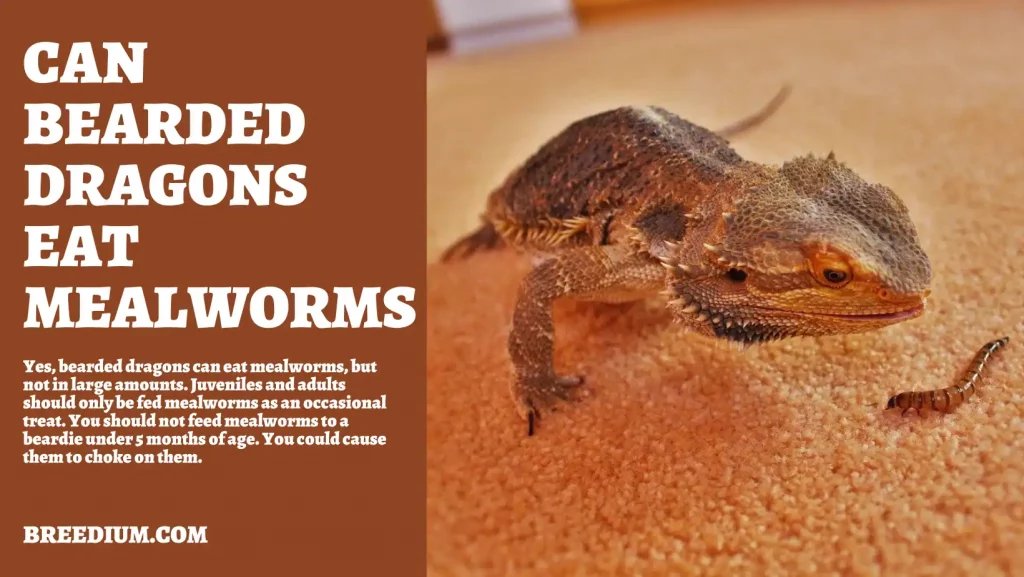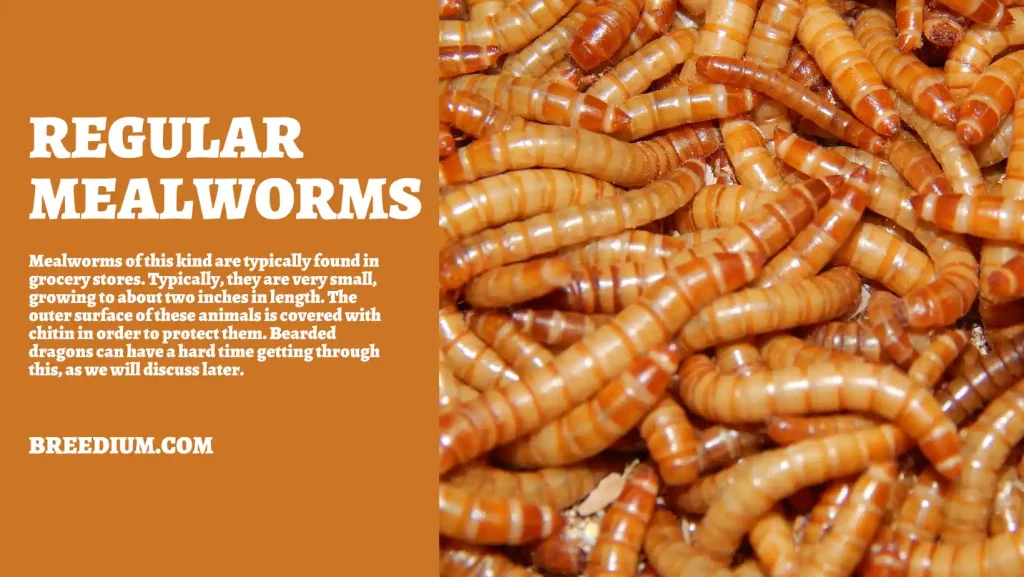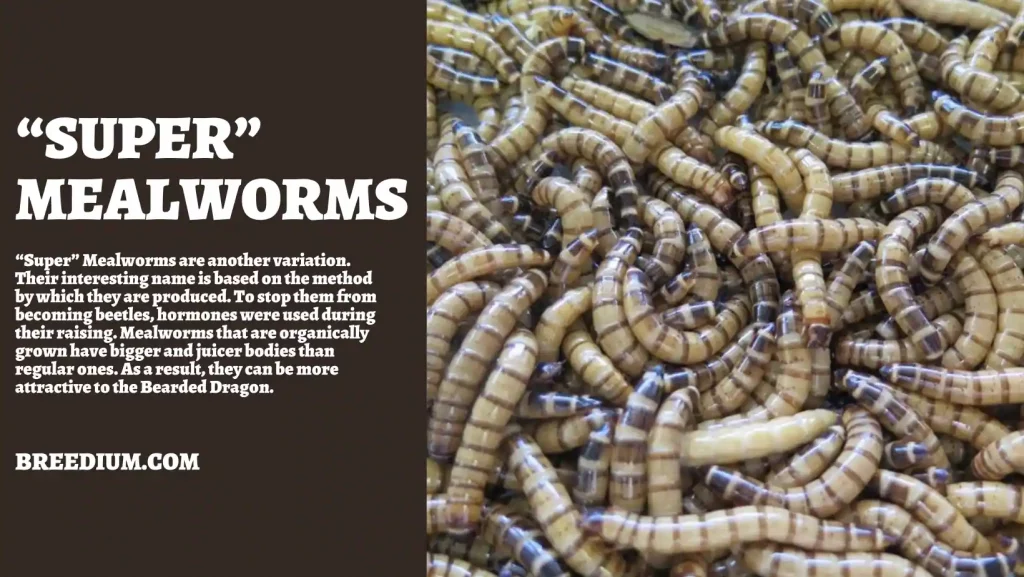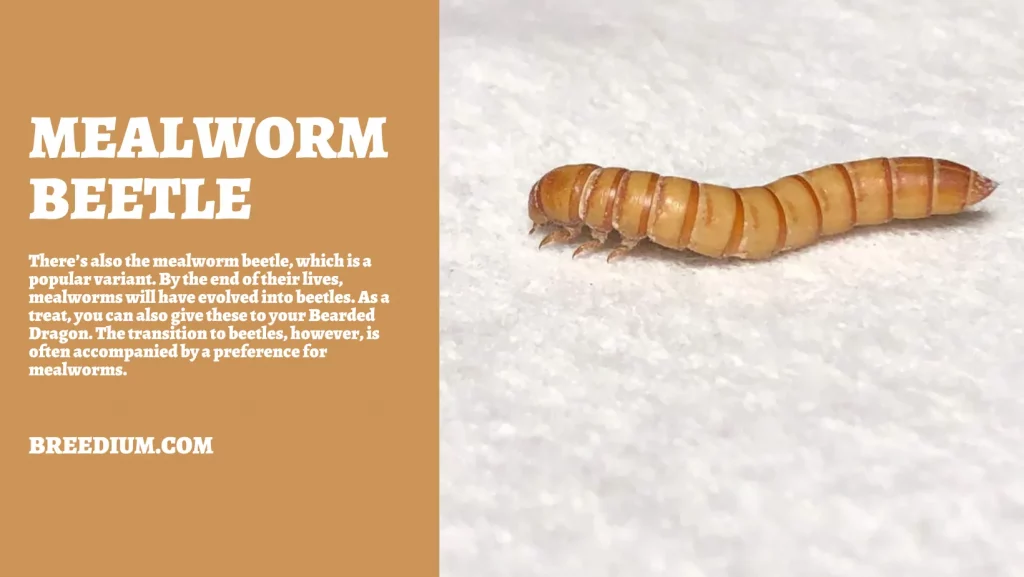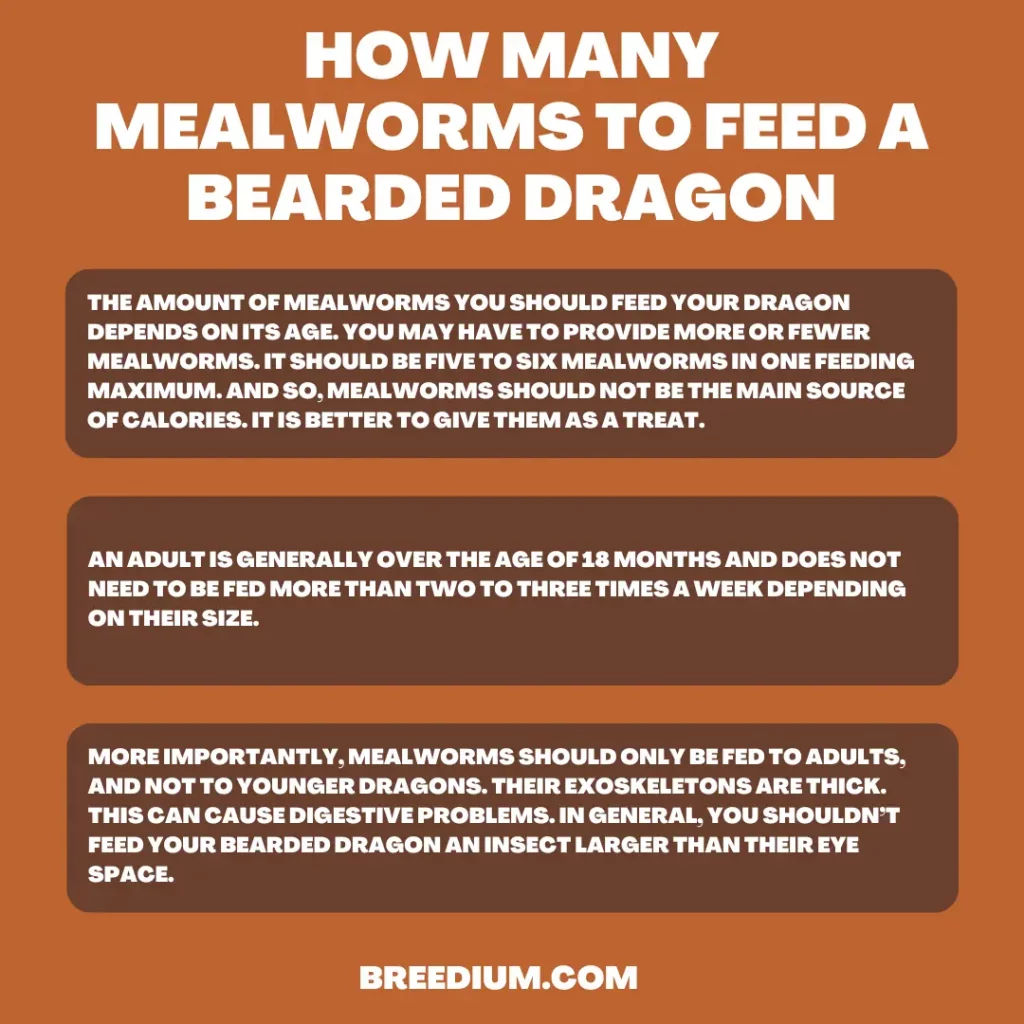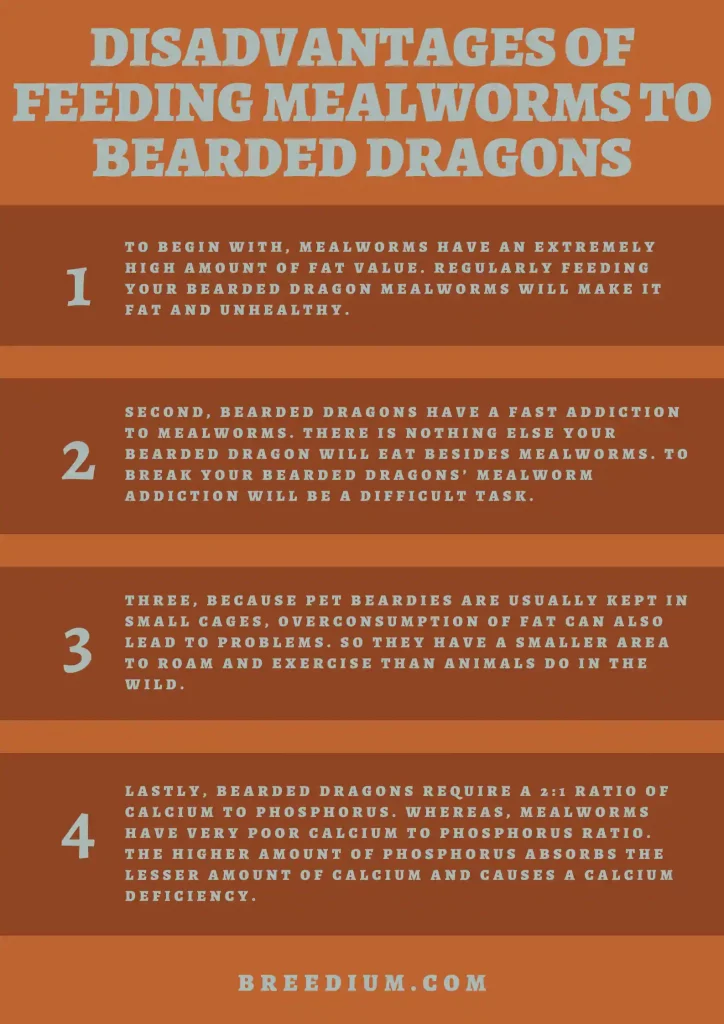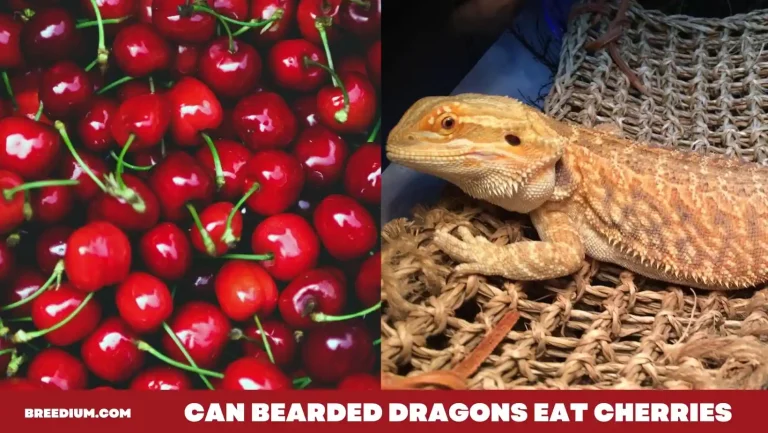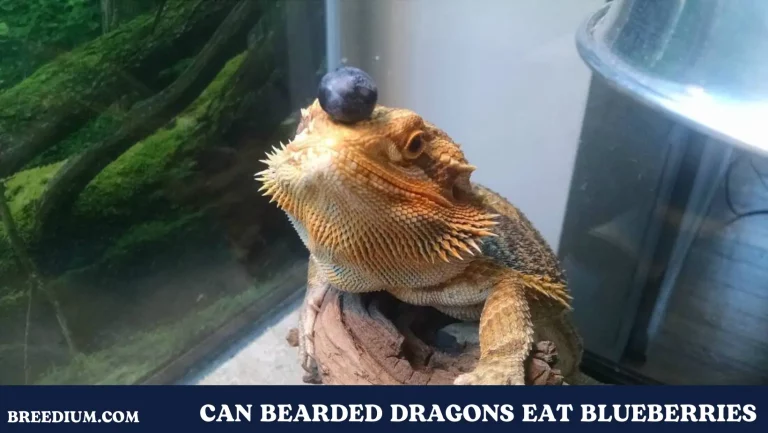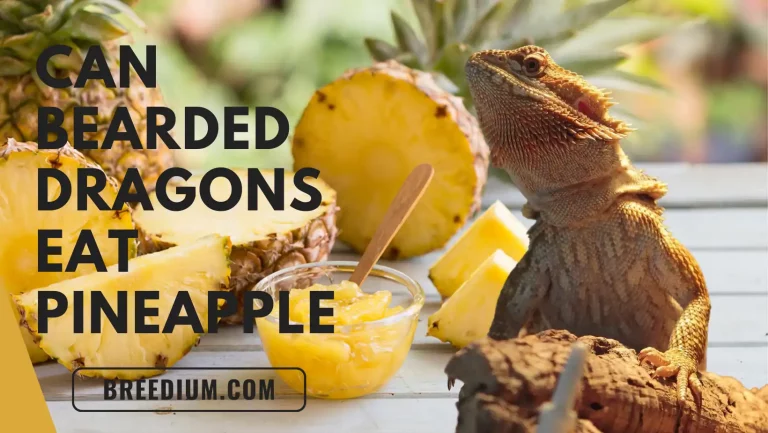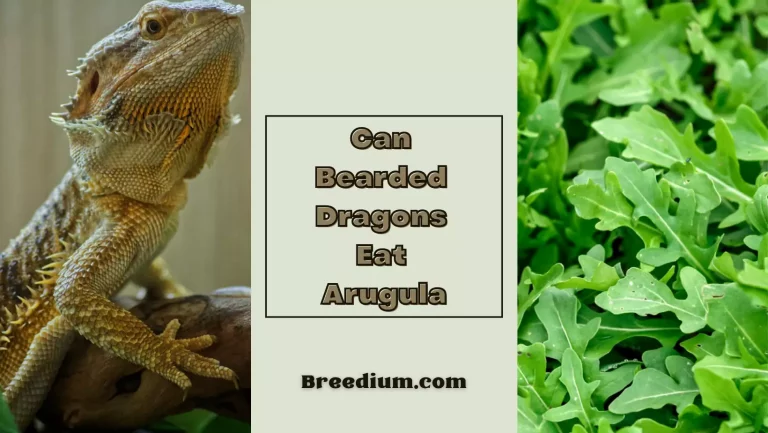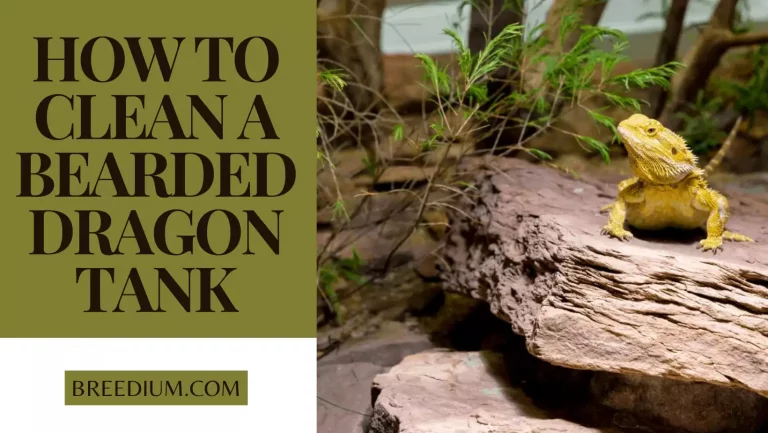Can Bearded Dragons Eat Mealworms? | Feeding Guidelines 2024
One of the bearded dragons’ favorite food is mealworms. They are nutritious and relatively inexpensive. Since you are looking for alternatives to their staple insects, would mealworms make a good choice? Can bearded dragons eat mealworms? Yes, bearded dragons can eat mealworms, but not in large amounts. Juveniles and adults should only be fed mealworms as an occasional treat. You should not feed mealworms to a beardie under 5 months of age. You could cause them to choke on them.
Types Of Mealworms
As a first consideration, you should be aware that mealworms come in a variety of types. Among them are;
- Regular mealworms
- “Super” mealworms
- Mealworm beetles
In order to understand the difference between each of these types, let’s take a closer look at them.
Regular Mealworms
Mealworms of this kind are typically found in grocery stores. Typically, they are very small, growing to about two inches in length. The outer surface of these animals is covered with chitin in order to protect them. Bearded dragons can have a hard time getting through this, as we will discuss later.
“Super” Mealworms
“Super” Mealworms are another variation. Their interesting name is based on the method by which they are produced. To stop them from becoming beetles, hormones were used during their raising. Mealworms that are organically grown have bigger and juicer bodies than regular ones. As a result, they can be more attractive to Bearded Dragons.
Mealworm Beetle
There’s also the mealworm beetle, which is a popular variant. By the end of their lives, mealworms will have evolved into beetles. As a treat, you can also give these to your Bearded Dragon. The transition to beetles, however, is often accompanied by a preference for mealworms.
The Nutritional Value Of Mealworms
Research has shown that mealworms aren’t as healthy as other options. Mealworms should only be used as treats. We have included below a general nutritional breakdown, derived from Bearded Dragon 101.
- Moisture- 62 Percent
- Fat- 13 Percent
- Protein- 20 Percent
- Calcium- 13.3 milligrams per 100 milligrams
They contain a lot of fat, as you can see. Therefore, they should remain as a treat item only. Moreover, they are low in calcium. Therefore, it is best to include a supplement before you feed them to your Bearded Dragon.
How Many Mealworms To Feed A Bearded Dragon
The amount of mealworms you should feed your Dragon depends on its age. You may have to provide more or fewer mealworms. It should be five to six mealworms in one feeding maximum. And so, mealworms should not be the main source of calories. It is better to give them a treat. An adult is generally over the age of 18 months and does not need to be fed more than two to three times a week depending on their size.
More importantly, mealworms should only be fed to adults, and not to younger dragons. Their exoskeletons are thick. This can cause digestive problems. In general, you shouldn’t feed your Bearded Dragon an insect larger than its eye space.
Disadvantages Of Feeding Mealworms
To begin with, mealworms have an extremely high amount of fat value. Regularly feeding your bearded dragon mealworms will make them fat and unhealthy.
Second, bearded dragons have a fast addiction to mealworms. There is nothing else your bearded dragon will eat besides mealworms. Breaking your bearded dragon’s mealworm addiction will be a difficult task. A beardie should consume calcium, proteins, and fats in a balanced diet to ensure good nutrition. Unfortunately, mealworms have unfavorable fats in their diet, which is unfavorable to the bearded dragon. Mealworms can lead to obesity if fed too frequently.
Three, because pet beards are usually kept in small cages, overconsumption of fat can also lead to problems. So they have a smaller area to roam and exercise than animals do in the wild. Fatal liver disease can result from this condition.
Lastly, bearded dragons require a 2:1 ratio of calcium to phosphorus. Whereas, whereas mealworms have a very poor calcium-to-phosphorus ratio. The higher amount of phosphorus absorbs the lesser amount of calcium and causes a calcium deficiency.
Metabolic bone diseases can be caused by overfeeding mealworms. To prevent calcium deficiency, you can supplement his diet with calcium and protein supplements. Furthermore, you can also have a look at Can Bearded Dragons Eat Roaches.
Conclusion
Bearded dragons cannot be harmed by mealworms. Mealworms contain high fat and low calcium content. Young beardies may have difficulty digesting these snacks, so only occasional and supplemental treats for adults that are able to handle them should be given. Additionally, dried mealworms may also be given to pets as a treat, but they do not contain moisture. The number of mealworms you feed is up to you, but you shouldn’t use them to replace more advantageous crickets or roaches as the primary feeder insect for your lizard.
Frequently Asked Questions
Can Bearded Dragons Eat Mealworm Beetles?
Aside from mealworms, mealworm beetles are low in fat and high in protein. You can feed mealworm beetles to your beardie but only less than five to six beetles in one week.
Is It Necessary To Feed Mealworms To Bearded Dragons?
No, mealworms are not a necessity for bearded dragons. If your dragon is already satisfied with its regular diet and routine. However, if your bearded dragon looks weaker, you should feed it immediately so that it regains its health.
Can Young Bearded Dragons Eat Mealworms?
Reptiles, especially bearded dragons, enjoy mealworms as insects. When your beardie reaches the teenage stage, which is between 5 and 18 months old, you can feed him mealworms.

Emma is a pet enthusiast, and her way with words makes her an expressive writer. Her interests lie in healthcare and planning nutrition for various pets. She has two girls, and she’s passing her passion to them through occasional volunteer projects in the small neighborhood zoo. Emma joined our team as an enthusiast and has added more years to her experience by researching more about various creatures!

